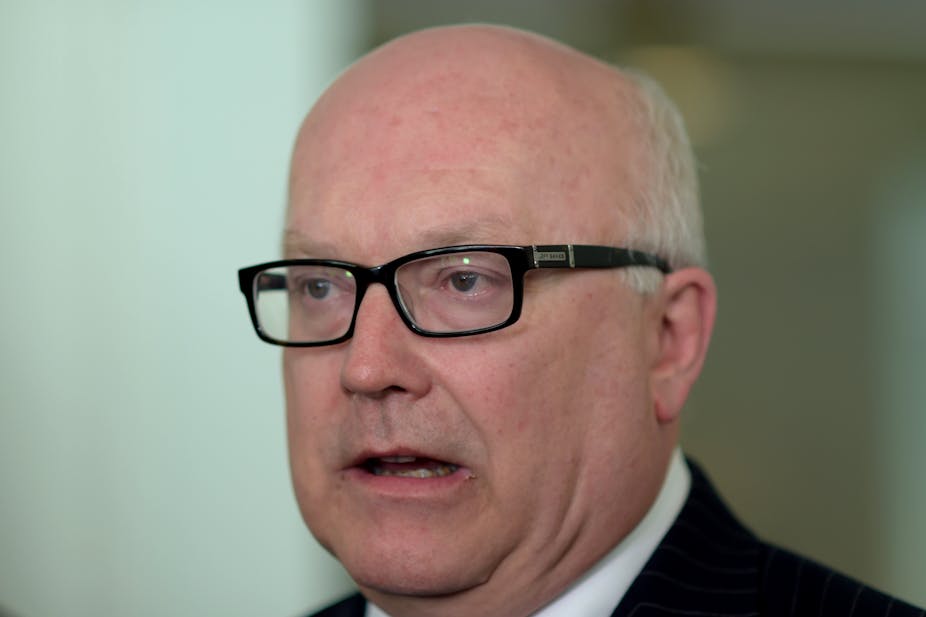Ministerial divisions have broken spectacularly into the open over whether Tony Abbott’s proposed popular vote on same-sex marriage should be a plebiscite or a constitutional referendum.
Attorney-General George Brandis on Thursday slapped down the idea from cabinet colleague Scott Morrison that it should take the form of a referendum.
Amid confusion and differences about the way forward on the issue, Brandis said: “It’s very important that as attorney-general I do remove some confusion that seems to have crept into this debate. There is no doubt whatsoever that a referendum to amend the constitution is not necessary.”
Brandis said that a “plebiscite is plainly the appropriate method”.
Morrison on Wednesday suggested the reference to “marriage” in Section 51 of the Constitution should be amended to read “opposite and same-sex marriage”. This would “clarify very clearly the meaning of the constitution”.
Morrison conceded that justices of the High Court had expressed opinions on this issue, but “I would prefer the Australian people decide this”.
Treasurer Joe Hockey is also a supporter of having a referendum.
A referendum would give those opposed to same-sex marriage – who include Morrison as well as Tony Abbott – a much better chance of holding it off. To pass, a referendum needs to be carried by a majority of states as well as an overall majority.
On Tuesday at a long Coalition party meeting MPs were two to one against giving government MPs a conscience vote on same-sex marriage, which killed any chance of a bill passing parliament this term. Abbott said afterwards that there was strong support for putting the matter to the people in the next term. But he has not said whether he thinks it should be a plebiscite or a referendum.
Communications Minister Malcolm Turnbull, a strong supporter of same-sex marriage, said even if a referendum passed it would not conclude the matter.
“Parliament would then have to legislate. It would still have to have detailed amendments to the marriage act. So a constitutional amendment would only be one step.”
Turnbull floated the option of a plebiscite being the legal trigger for the introduction of same-sex marriage.
This would involve passing a bill first which would come into effect only if the plebiscite were then passed. If this was done before the election, same-sex marriage would not be an election issue, Turnbull said.
If it was done afterwards, “this would be a red hot issue at the election”.
“My own view is that it would be good if the matter was dealt with before the election.”
Turnbull rather mischievously pointed out that “we’re in a sort of unusual situation where this – this is probably quite liberating perhaps – where this issue is being discussed by ministers en plein air, literally en plein air, in the open. Everyone’s expressing different views.”
Meanwhile, the Greens and several other crossbenchers are putting forward a bill for a question on same-sex marriage to be put to the people no later than the next election. The other crossbenchers are Nick Xenophon, Ricky Muir, Jacqui Lambie, Glenn Lazarus and David Leyonhjelm.
As Liberal MP Warren Entsch prepares on Monday to introduce the private member’s cross-party bill to legalise same-sex marriage, Liberal MPs Teresa Gambaro – a seconder of the bill – and Wyatt Roy have said they will cross the floor on any vote.
But it appears unlikely that bill will get to the vote stage, although it is possible there could be a move, which would be doomed, to try to suspend standing orders to bring on a debate. Senator Dean Smith has said he will cross the floor is there is a vote on a same-sex marriage bill in the Senate.

